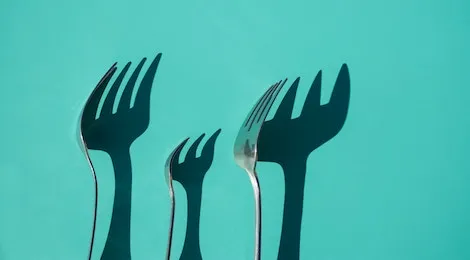
5 More Books That Call Bullsh*t on Diet Culture
A few years ago, I finally got up the courage to call myself fat. This was not a self-flagellating decision! I was inspired to reclaim the word as a descriptor, like tall or pale. The reckoning that being fat was okay, and the permission to direct my energies to other self improvement endeavors completely changed my life. I credit a lot of places with my gradual shift in mindset—a carefully curated Instagram feed that celebrated bodies of every size, shape, color, and ability, the time I spent educating myself about the true links between health and weight, voicing the sickening nefariousness of the diet industry (especially as it has sneakily been rebranding in the name of wellness, a crappy code word that STILL MEANS “change yourself”), and of course, BOOKS!
In the years since I wrote that first article, diet culture has not quieted. There are plenty of revolutions happening in the public consciousness right now, but freedom from constant, numbing diet chatter is not one of them. Diet culture is smarter than I’m comfortable with. Co-opting buzzy phrases like self care and treat yourself, many pieces of the industry, big and small, are coming at us with messages like “You deserve to weigh less,” and “Us moms need to make sure we make time for ourselves! Try this detox.” I get weekly unwanted solicitations from at home “health coaches” who want to “help me reach my goals,” and my Insta account is PRETTY fat-happy. It’s relentless. Exhausting. It’s trying to break us down.
True body autonomy means you get to do whatever you want with your very own body. As uncomfortable as it makes me personally, this includes dangerous detoxes and strict diets. HOWEVER, the information available is not weighted evenly. Especially in January, when the diet talk is pummeling from every direction, take some time to read some books that remind you: it’s okay to be fat. Take what need from this lovely literature and work to make decisions about your body and health that are not dictated by multi-billion dollar corporations that do not want to help you. Here are five more books that call bullshit on diet culture.
 You Have the Right To Remain Fat by Virgie Tovar
You Have the Right To Remain Fat by Virgie Tovar
Virgie Tovar is a sexy, fashionable, badass fat activist who lives a colorful, exciting life. She wants the same for you. My first experience with Tovar was Hot and Heavy, a set of essays she edited that was so radical to me as a woman who had always suspected that my weight and my sexuality had a negative correlation. Her latest book is a plea for people to live their best lives immediately, no matter their weight. You Have the Right to Remain Fat is an accumulation of years of research about patriarchy, misogyny, and diet industry evil, collected personal experiences, and a call for revolution. This would be my pick to share with people who aren’t fat, but who recognize the need to support people of all sizes.
 Landwhale by Jes Baker
Landwhale by Jes Baker
Jes Baker is one of the reasons I call myself fat. Her internet presence is powerful, but it was her first set of essays, Things No One Tells Fat Girls, that really put her on my radar as a educational force of nature around all things body politics. While her first book really breaks down the mechanisms of diet culture, defining it not as a system doomed to fail but a very calculated industry that only exists because when it’s products don’t work, this recent memoir reads more personally, with topics ranging from painful childhood memories to relatable stories about sweating in parks. Reading this paperback proudly in the gym leads to delightful double takes.
 The Body is Not An Apology: The Power of Radical Self Love by Sonya Renee Taylor
The Body is Not An Apology: The Power of Radical Self Love by Sonya Renee Taylor
A line from the book description sums this up perfectly: Systems of oppression thrive off our inability to make peace with difference and injure the relationship we have with our own bodies. The Body Is Not an Apology offers radical self-love as the balm to heal the wounds inflicted by we these violent systems. Diet culture is linked to the patriarchy, which is linked to white supremacy. All of these systems thrive when people experience shame, and this shame, specifically body of the body variety, is what Sonya Renee Taylor dissects and calls out in this slim volume of absolute beauty. The foreword itself made my breath catch, a jewel of a story about the origins of the phrase, and powerful education spirals on from there.
 Body Positive Power: Because Life Is Already Happening and You Don’t Need Flat Abs to Live It by Megan Jayne Crabbe
Body Positive Power: Because Life Is Already Happening and You Don’t Need Flat Abs to Live It by Megan Jayne Crabbe
Crabbe is most well-known for her popular Instagram account (@bodyposipanda) celebrating all bodies and encouraging all people, but women especially, to ditch diets, reject body shame, and comfortable with every part of themselves. An eating disorder survivor herself, her book highlights that diet culture is not only unfair and unwinnable, but can be incredibly unhealthy for your body and your mind. This is another great one for people who are unaware of the negativity of diet culture—lots of revelations and a general feel-good message.
 Eat Up: Food, Appetite, and Eating What You Want by Ruby Tandoh
Eat Up: Food, Appetite, and Eating What You Want by Ruby Tandoh
This is the only book on my list written by a thin person (one who calls out her thin privilege and centers fat voices when discussing diet culture so HEY!), but it’s also one of the most important. Ruby Tandoh, of Great British Bake Off fame, absolutely destroys food moralism in this set of essays with nontraditional recipes sprinkled through. Diet culture’s recent iteration calls for a “food as fuel” mindset that reduces eating to a calculation of calories and nutrients and warns against the dangers of forming emotional responses to food. (This is especially egregious because diet culture itself is the root of our labeling foods as good and bad, bingeing in response to positive or negative events, and disorders that exist about this basic human function—eating. AND THEN THEY TELL US NOT TO GET EMOTIONAL ABOUT IT. Don’t get me started.) Tandoh tackles this as well as the food classism rampant in our society, celebrating “junk foods” such as chips and Cadbury cream eggs and examining our obsession with “eating clean.” I would say this book is less of a cover-to-cover read and more of an extremely awesome flip-through.



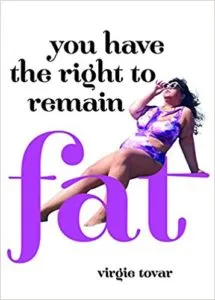
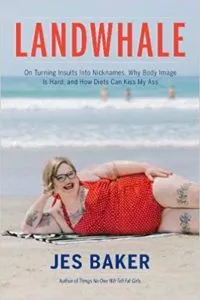 Landwhale
Landwhale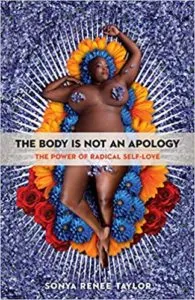 The Body is Not An Apology: The Power of Radical Self Love
The Body is Not An Apology: The Power of Radical Self Love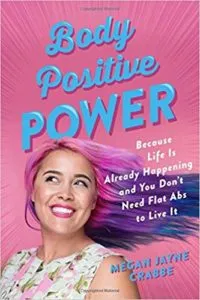 Body Positive Power: Because Life Is Already Happening and You Don’t Need Flat Abs to Live It
Body Positive Power: Because Life Is Already Happening and You Don’t Need Flat Abs to Live It 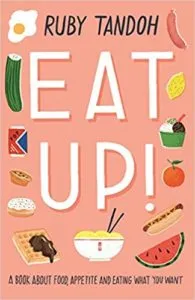 Eat Up: Food, Appetite, and Eating What You Want
Eat Up: Food, Appetite, and Eating What You Want








